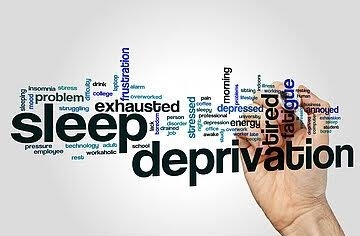
What happens when you don’t get enough sleep ?
(1) Lack of sleep kills sex drive
For men with sleep deprivation , a respiratory problem that interupts sleep , there may be another factor in the sexual slump, A study published in the journal of clinical endocrinology & metabolism in 2002 suggests that many men with sleep deprivation also have low testosterone levels. In the study , nearly half of the men who suffered from severe sleep deprivation also behaving abnormally & low levels of testosterone during night.
Sleep specialist say that sleep-deprivation in men & women report lower libidos & less interest in sex , depleted energy, sleepiness & increase tension may be largely to blame.
(2) Lack of sleep is depressing
One time , lack of sleep & sleep deprivation can contribute to the symptoms of depression.
The most common sleep disorders , strongest link to depression. In 2007 study of 10’000 people, those were having sleep deprivation they were five times as likely to develop depression as those without. In fact , sleep deprivation is often one of the first symptoms of depression.
Sleep deprivation & depression feed on each other. Sleep loss often aggregates the symptoms of depression & depression can make it more difficult to fall asleep. On the beneficiary side treating sleep problems can help depression & it’s symptoms or vice versa.
Causes of sleep deprivation

Sleep deprivation can be caused by a wide range of factors here are some of the most common causes:
(1) Mental health disorders:
Mental health conditions such as depression , anxiety & post traumatic stress disorder(PTSD) can interfere with sleep & cause sleep deprivation.
(2) Environmental factors:
External factors such as noise , light , temperature or an uncomfortable bed or pillow can all contribute to sleep deprivation.
(3) Work related factors:
People who work night shifts, rotating shifts, or irregular hours often experience sleep deprivation due to disruptions in their natural sleepwake cycles.
It’s important to note that some individuals may experience sleep deprivation as a result of a combination of these factors. In many cases , making lifestyle changes or seeking medical treatment can help alleviate symptoms of sleep deprivation.
Some home treatment.

Sleep deprivation can have serious consequences on both physical & mental health. Here are some solutions that can help improve sleep
(1) Stick to a consistent sleep schedule:
Try to go to bed & wake up at some time every day ,including weekends. This will help regulate your body’s internal clock & promote better sleep.
(2) Create a relaxing sleep environment:
Make sure your bedroom is quiet, dark & coal. Consider using ear plugs or a white noise machine to block out any external noise
(3) Avoid stimulants:
Avoid caffeine, nicotine & alchohol, especially in the afternoon & evening. These substance can interfere with your ability to fall asleep & stay asleep.
(4) establish a bed time routine:
Develoaping a relaxing bedtime routine that you can follow every night. This might include taking a warm bath, reading a book , or practicing relaxation techniques like mediation or deep breathing.
(5) Avoid electronics before bed:
The blue emitted by electronic devices like smartphones tablets & computer can disrupt your sleep. Try to avoid using these devices for at least on hour before bedtime
Remember , getting enough sleep quality sleep is essential for your health & well being. Don’t hesitate to seek help if you are struggling with sleep deprivation.

A well-crafted post that covers all aspects of the topic; couldn’t ask for more.